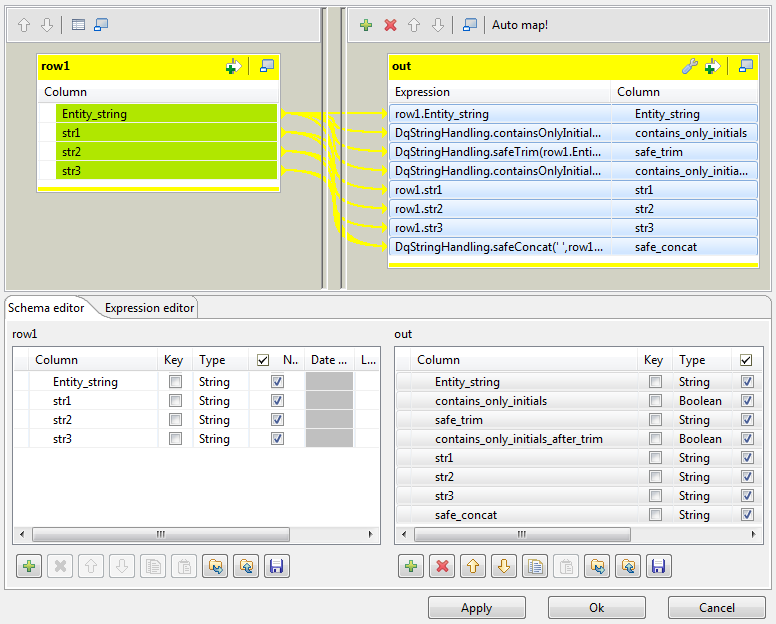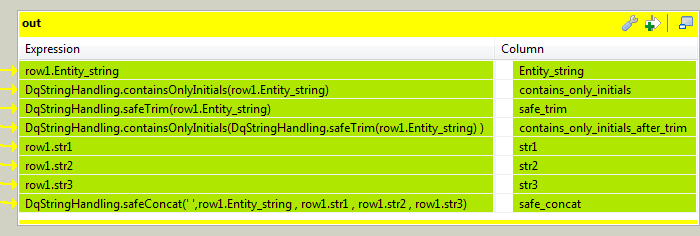Configuring the tMap component
- Big Data Platform
- Cloud API Services Platform
- Cloud Big Data Platform
- Cloud Data Fabric
- Cloud Data Management Platform
- Data Fabric
- Data Management Platform
- Data Services Platform
- MDM Platform
- Real-Time Big Data Platform
Procedure
-
Double-click tMap to open the Map
editor.

-
On the right side of the lower part of the editor, click the [+] button to add 8 rows and rename them with:
Entity_string,
contains_only_initials, safe_trim,
contains_only_initials_after_trim,
str1, str2,
str3, safe_concat.
These rows correspond to the original input data or the data to be handled by the DqStringHandling functions.
-
In this table, click, in the Type column,
the contains_only_initials and the
contains_only_initials_after_trim rows respectively and
select Boolean from the drop-down list for
each of them.
On the upper part of this editor, these new rows have been added to the output table on the right side automatically.

- From the row1 input table on the left side to the Expression column of the output table on the right side, drop the Entity_string, the str1, the str2 and the str3 rows respectively on the corresponding rows on the output side.
- In the Expression column, select the contains_only_initials row.
- Press Ctrl+space to open the auto-completion list.
- From this list, select DqStringHandling.containOnlyInitials.
-
Continue to enter the row of data to be handled by this selected routine
between the parentheses to replace the default one. In this use case, this
row is row1.Entity_string.
Thus the entered expression reads as the following: Handling.containsOnlyInitials(row1.Entity_string).
-
Do the same to complete the rest of the rows in the
Expression column using the corresponding
DqStringHandling functions to each row. Then these row
expressions read as follows:
-
DqStringHandling.safeTrim(row1.Entity_string) for the safe_trim row;
-
DqStringHandling.containsOnlyInitials; (DqStringHandling.safeTrim(row1.Entity_string) ) for the contains_only_initials_after_trim row;
-
DqStringHandling.safeConcat(' ', row1.Entity_string , row1.str1, row1.str2 , row1.str3) for the safe_concat row.
Information noteNote: As is presented in this use case, different DqStringHandling functions can be combined in one expression to produce an advanced result. -
- Click OK to validate these changes and accept the propagation prompted by the dialog box that pops up.
Did this page help you?
If you find any issues with this page or its content – a typo, a missing step, or a technical error – please let us know!
